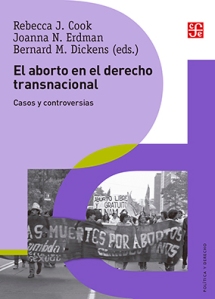Many thanks to Francisca Fernández Guillén, a feminist lawyer who specialises in sexual and reproductive health. She collaborated as an expert with the Women’s Health Observatory (part of the Spain’s Ministry of Health) on the development of the “Strategy for Assistance at Normal Childbirth in the National Health System”. She also gives training and talks for professionals on health legislation and bioethics and contributes articles and opinion pieces to journals and specialist presses, some of which can be read here. We thank her for commenting on this enlightening case and decision:
Zurich Insurance PLC, Sucursal en España v. Doña Encarnacion y don César y Servicio Galego de Saude, Sentencia 00392/2017, Apelación 43/17 (High Court of Galicia at Coruña, Spain) Decision online in Spanish
The Health Service of the autonomous region of Galicia in Spain was recently found guilty of intentionally concealing from a pregnant mother, the fact that her child was suffering from severe life-limiting anomalies that included “cri du chat” syndrome, a severe mental disability. The Health Service also obliged her to travel 600 km to receive an abortion in a private clinic that was insufficiently prepared to deal with her clinical condition. As a consequence, her child was born alive after seven months in the womb and died shortly afterwards, while the woman, only 32 years old, lost her uterus.
During the High Court proceedings, it emerged that her doctors had deliberately delayed the protocoled prenatal diagnostic testing. Once she had a proper diagnosis, following a consultation with a private geneticist, the gynaecologist in the regional health service then delayed authorization for an abortion, maintaining that it was necessary to carry out further diagnostic tests. However, the expert witness called by the woman’s defence team made it clear that the tests on which the gynaecologist had insisted were primarily of interest to establishing cause of death and implications for future pregnancies, and were by no means urgent, especially in a case of advanced gestation that required immediate termination.
The High Court’s ruling made it clear that what had occurred was a “severe failure of the health system.” The president of the regional government, Albert Nuñez Feijoo, resolved not to appeal the initial decision of the county court and apologized for what had happened, attributing blame to the fact that a very high proportion of doctors in the region are “conscientious objectors” to medical abortions. Nevertheless, the Health Service’s insurance company, hoping to reduce their compensation to the victim, appealed to the High Court of Galicia, which subsequently ratified the county court’s sentence, along with particularly harsh criticism of the Health Service’s actions.
During the court proceedings, it was put forth that the birth of child with such a severe illness is an insurmountable burden for the mother, her family and society. As a lawyer, I am concerned that this woman’s experience is not an isolated case. During the proceedings, I learned of a number of women who have had similar experiences with the Health Service.
In one instance, a woman gave birth to a boy who suffers from severe disability and cardiopathy, including Golenhar syndrome and Tetralogy of Fallot. His mother, abandoned by the boy’s father during the pregnancy, is an immigrant from South America who works as a domestic assistant and has insufficient economic or social resources to bring up a child with such severe disabilities. Unfortunately, she doesn’t wish to take the case to court for fear of repercussions, since her child must receive care from the same hospital for the duration of his life.
Despite reporting this and other known cases to the appropriate authorities in the health service, I have never received any response and, to this day, no effective measures have been put in place to ensure that religious ideology and a lack of ethical commitment, inappropriately called “conscientious objection”, don’t put the lives and health of women in danger.
Decision:
Zurich Insurance PLC, Sucursal en España v. Doña Encarnacion y don César y Servicio Galego de Saude, Sentencia 00392/2017, Apelación 43/17 (High Court of Galicia at Coruña, Spain) Decision in Spanish
News reports:
El Pais (English): “The doctors’ right to object nearly cost me my life” Health system ordered to compensate woman who lost uterus after hospital refused to carry out abortion
(Spanish) Eldiario.es The Galician government found guilty and must pay 270.000 € to women who lost her uterus See also: The President of the autonomous region of Galicia apologizes
_____________
The REPROHEALTHLAW BLOG is managed by the International Reproductive and Sexual Health Law Program, reprohealth*law at utoronto.ca. For Program publications and resources, see our website, online here. TO JOIN THIS BLOG: enter your email address in upper right corner of this webpage, then check your email to confirm the subscription.




